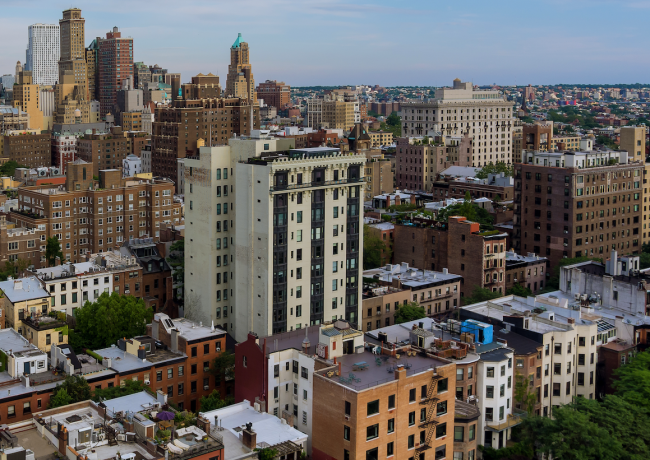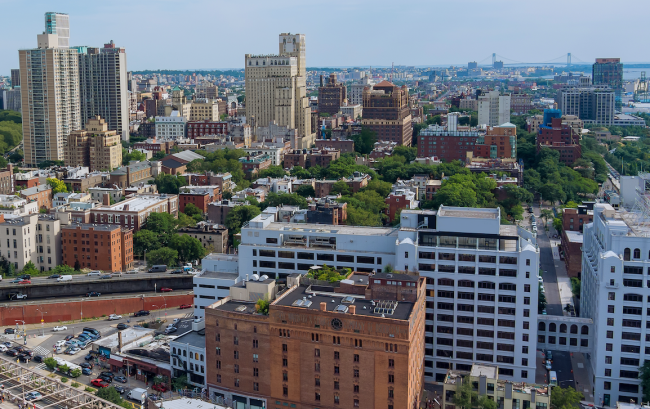Our landlord wants us to sign a three-year lease. Is this a good or bad idea?

A 36-month lease is longer than the norm—you gain some stability but lose some flexibility.
Emily Myers for Brick Underground
Our lease is up and our landlord offered us a new lease for 36 months! We're hesitating to commit. Why would an owner want to lock us in for three years? What are the advantages and disadvantages?
Renewing your lease means you avoid the stress of finding a new place and dealing with the current frenzy for rentals in New York City, including bidding wars that are driving rents up higher.
A standard lease length is 12-24 months but this can vary depending on the time of year and the competitiveness of the rental market. When demand for apartments is strong, as it is now, landlords will ask for whatever works best for them.
A 36-month lease is certainly longer than the norm, but your landlord may be eager to lock in a rent that's back up to pre-pandemic levels. If it is a small landlord who has seen vacancies over the past year, they may be hedging against future disruption by asking you for this type of commitment.
A three-year lease can give you some stability—you can lock in your rent amount and even if the second or third year of the lease includes an increase, you will know what it is in advance. However, if the rental market cools off or even slows down, you don't want to be locked in at a rate that doesn't reflect actual rents.
Read on for more advantages and disadvantages of committing to a three-year lease.
Researching apartment rents
Your first step is to find out the relative value of the apartment and the expected value over the next three years, says Josiah Hyatt, a broker at Keller Williams NYC. A broker can advise you on this and you can also check out comparable rents for the type of apartment and the neighborhood you're looking in. Hyatt says in the current frenzied market, he can receive up to 400 inquiries on the same apartment over a weekend.
"Having this information for comparable apartments to yours will help shape your renewal decision," he says.
The vacancy rate is a good barometer for how competitive the Manhattan rental market is. Right now it's at around 1.5 percent. If that rate edges up to 2.5 percent the rental market will lose some of its current hyper-competitiveness.
If you're not sure how long you will be in your apartment, consider this: On average, NYC tenants stay in one apartment for an average of 18 months, according to data from the listing site Openigloo. Allia Mohamad is the company's co-founder and CEO and she highly recommends renters read building reviews and check city data associated with an address before signing a lease.
"This can help assess whether the price and lease term is truly worth it," she says.
A longer lease can give you stability
When the vacancy rate is low and rents are soaring, as they are now, having the predictability of a locked-in monthly rate over several years can provide peace of mind, says Brian Hourigan, managing director at BOND New York.
Additionally, not having to worry about lease renewals and renegotiating terms can take a major annual stressor off your plate.
If you're looking at apartments in smaller buildings—so-called mom and pop landlords rather than luxury rentals—Kunal Khemlani, an agent at Living New York, says smaller landlords often want to see how the relationship progresses with a new tenant before committing to a long lease term. If you're being offered a 36-month lease renewal, it's a sign your landlord is confident in you as a tenant.
A shorter lease can give you flexibility
On the other hand, if you're new to a neighborhood, are going through some sort of transition, or are stretching your budget to afford a new apartment, you might not want to make such a long-term commitment. If your personal circumstances change and the rent becomes too much, you may want the flexibility to leave and find somewhere more affordable.
Hourigan says you can ask for a shorter 12-month lease and see if you can add an option to renew once you have a better sense of the longer-term picture.
"A landlord might agree to a slightly higher rent or more favorable lease terms for them—like ending the lease in the traditionally busier summer months—in exchange for sacrificing the mutual predictability of having a longer-term tenant in place," he says.
Leases are often drawn up to end in the summer
Many owners want to have leases that end in the summer when there are more renters looking for apartments. If you are looking for a place in the winter, it's not uncommon to be asked to sign a lease for 16 or 18 months. Hyatt says rents in July or August can command 10 to 15 percent more.
If you signed the lease when rents were lower last year and the lease term ends in the next few months, Hyatt says you should "plan for this automatic increase and do not be surprised and unprepared when you get your renewal offer."
The risks of breaking a lease
If the market remains as competitive as it is now and you need to break the lease, it should be fairly easy to find a tenant to either sublet or assign your lease. New York's rent laws require landlords to mitigate damages—that's the legal terminology spelling out how a landlord must do all they can to help re-rent the apartment.
Even so, there are risks involved with breaking a lease. You may face a financial penalty and even if you find a new tenant, if they are not paying the rent you agreed to in your lease, you may be on the hook for the difference between your rent and the new rent.
Leases for rent-stabilized apartments
Leases for rent-stabilized apartments are either 12 or 24 months and annual rent increases are set by the Rent Guidelines Board, a city agency that meets annually to vote on percentage increases. Most recently a 1.5 percent increase was approved for the second six months of a one-year lease. A 2.5 percent increase was approved for two-year leases.
If you are renting in a stabilized apartment you are entitled to a lease renewal or, if there’s a valid reason not to renew—like a plan to move a family member of the owner into your apartment or if the landlord claims the apartment is not your primary residence—they need to provide you with a notice of non-renewal.



























